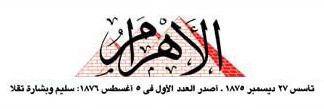
Undoubtedly, our Arab reality today is not the best, nor is what preceded it in the recent past before the events of what was termed the Arab Spring and the security turmoil that accompanied it in a group of Arab countries, whose first sparks erupted at the beginning of 2011.
Its rays still send sparks to many Arab regions in one way or another, which are unmistakable effects and can be monitored in all Arab countries, albeit to varying degrees. A contemplator of the conditions of the Arab countries in the last eight years will find that even the countries that did not directly suffer from internal revolutions have been negatively affected by these changes, so what about the countries that directly suffered from them?
From a purely economic perspective, the observer will discover that these revolutions and turmoil have resulted in negative effects on the countries in which they occurred in particular, and on the neighboring countries as well, albeit to a lesser extent, and even left thick and heavy shadows that hindered the movement of progress and development. We would not be exaggerating if we say that these disturbances stopped history at the end of the first decade of this century, but rather reached the directly affected countries in which civil wars or security disturbances and foreign interventions before the era of modernity continued, and caused many crises on neighboring countries and countries outside the Arab system that received Millions of Arab immigrants from countries suffering from this crisis.
In the language of strategic planning, we have a basic strategic goal, which is to achieve development sustainability and economic prosperity, and in order to reach this end, Arab leaders must adopt urgent interim goals that enhance security stability and make it a tangible reality for the Arab citizen to feel. What it represents is a huge qualitative and quantitative leap that will raise the level of boldness of policy and decision makers, and push them towards adopting bold policies and measures that will lead the current Arab reality towards profound and radical change and create a capacity for peoples; To take upon itself the bill of reconstruction as a way out of the bottleneck, and looking forward to a better reality and a bright, competitive future that would allow future generations to benefit from those plans and programmes; To end a painful page of Arab history that was fraught with many losses and material and moral damage, and to look to the future in a brighter way and expect the best.
الواقع العربي واهمية تبني استراتيجيات تغييرية جذرية 1
In spite of the devastating effects that resulted from these events, and the exorbitant bill paid by states and humanity, and the world bearing its consequences, we believe that we have entered a stage when we must change the direction of the compass towards development and reconstruction in the Arab region in an integrated manner.
Despite all the obstacles and dark images of the Arab reality, we must adhere to positivity and return to the eternal cosmic year, which confirms that great and gigantic challenges often lead humanity towards development after good reading of the lessons and lessons and benefiting from them; To prevent past mistakes from being repeated, and to improve future situations.
This great challenge should galvanize the utmost levels of cooperation and joint action between Arab countries in the areas of planning and implementation, in order to reach integration in roles and achieve goals. Without that, the reality and future of the Arab region will be subject to experiments that will be limited to strokes of luck!
Advisor to the Council of Arab Economic Unity and President of the Arab Federation for Digital Economy
| About | |
|---|---|
| Initiatives | |
| Knowledge | |
| Services | |
| Media Center | |
| Contact |